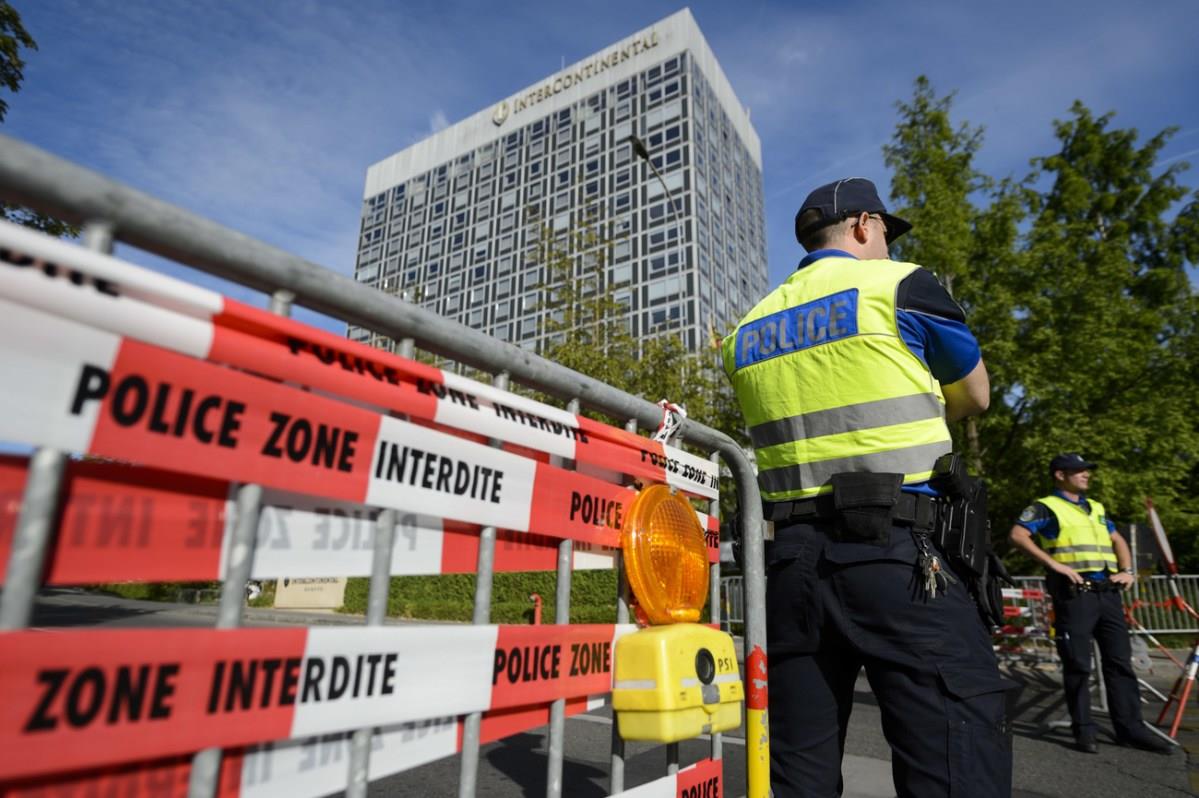
Without The US, Nuclear Talks Between Iran And Europe Make Fragile Progress
Dorian covers the work of international organisations based in Geneva.
-
More from this auth
French Departme
-
Deutsch
de
Die Verhandlungen zwischen Iran und Europa kommen ohne die USA nur zögerlich voran
Read more: Die Verhandlungen zwischen Iran und Europa kommen ohne die USA nur zögerlich vora
Français
fr
En l'absence des États-Unis, les pourparlers entre l'Iran et l'Europe avancent timidement
Original
Read more: En l'absence des États-Unis, les pourparlers entre l'Iran et l'Europe avancent timidemen
The discussions – held at a secret location near Geneva – were described as“serious, frank, and constructive” by Iranian, French, British, and German diplomats on Monday evening, following the first of two days of talks. Representatives of these countries had already met in late November in the Swiss city. On Tuesday evening, Iran's foreign minister added he had“sensed a serious willingness” from France, the United Kingdom, and Germany to resume negotiations on Iran's nuclear program.
Both sides had agreed to frame the talks as“consultations” rather than formal“negotiations,” providing an opportunity for Iran and the European powers to address several topics, including the critical issue of Iran's nuclear development.
But behind the diplomatic formalities lies a growing urgency. European nations are increasingly alarmed by rapid advancements in Iran nuclear programme. According to the International Atomic Energy Agency (IAEA) – the UN's nuclear watchdog – Iran is now capable of enriching uranium to 60% purity, approaching the 90% threshold required for nuclear weapons. While France, the UK, and Germany have called on Iran to halt its“nuclear escalation,” Tehran claims it has a right to develop nuclear energy for civilian purposes.
At the same time, Iran faces mounting internal and external pressures. The country has been weakened by military setbacks inflicted by Israel on its regional proxies – such as Hezbollah and Hamas – and by the collapse of Bashar al-Assad's regime in Syria. In addition, Tehran is grappling with a severe economic crisis. Against this backdrop, Iran is seeking relief from Western sanctions.
This urgency is heightened by looming deadlines. In October 2025, key provisions of the 2015 Joint Comprehensive Plan of Action (JCPOA), also known as the Iran nuclear deal, are set to expire. Notably, the“snapback” mechanism – allowing France, the UK, or Germany to unilaterally reinstate UN sanctions on Iran – will no longer be available to European powers after that date.
Relations between Iran and European nations, historically better than Tehran's ties with Washington, which have been severed for 45 years, have deteriorated in recent years. This is largely due to Iran's delivery of drones to Russia for use in the war in Ukraine and its crackdown on protests following the custodial death of 22-year-old Mahsa Amini, arrested for allegedly wearing“improper hijab”.

Legal Disclaimer:
MENAFN provides the
information “as is” without warranty of any kind. We do not accept
any responsibility or liability for the accuracy, content, images,
videos, licenses, completeness, legality, or reliability of the information
contained in this article. If you have any complaints or copyright
issues related to this article, kindly contact the provider above.


















Comments
No comment